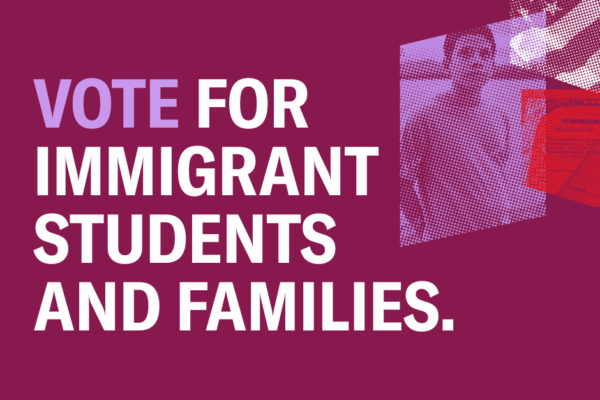By: Latin American Community Center
Immigrant students and families deserve to exercise their right to access public education without fear of discrimination or intimidation. However, across the country, discriminatory policies, harmful rhetoric, and the growing presence of law enforcement and ICE in and around schools continues to instill fear in our communities and threaten immigrant students' ability to learn in a safe, inclusive, and equitable environment.
Our school boards play a powerful role in determining how Delaware schools will respond to these escalating attacks on immigrant students and families. As elected representatives of the community, school board members play a critical role in advancing principles of equity and inclusion in our schools. However, despite making up the largest body of elected officials in the country, school board elections suffer from extremely low voter turnout rates. Low turnout makes these elections vulnerable to candidates who push policies that harm and overlook the real needs of students – particularly those who are most vulnerable, like immigrant students.
That’s why it's more important than ever to cast an informed ballot for school board candidates who are committed to protecting immigrant students and families during Delaware’s school board elections on Tuesday, May 13.
Here are a few ways school boards can protect immigrant students and families:
Privacy
School boards can champion privacy policies that protect the personal information of students and their families, including immigration status. School boards can adopt an official district policy not to inquire about immigration status or related information, nor to detain or report students and family members for purposes of immigration enforcement. Immigrant families deserve to have the confidence and security to send their children to school without fear of their personal information making them vulnerable.
Interactions with ICE and Law Enforcement
School boards can establish policies that dictate how staff and educators interact with ICE. These policies can limit immigration officers’ access to schools without a judicial warrant, ensure secure channels for communication with families, and provide support for immigrant students whose family members have been detained.
Additionally, school boards can encourage the widespread distribution of Know Your Rights resources, particularly those focused on immigrant protections, in classrooms, offices, school websites, communications, and other easily accessible locations. By ensuring that students, educators, and schools' staff are empowered with knowledge about their rights when interacting with ICE and law enforcement, school boards can create a safer school community for everyone.
Protection from Bullying and Harassment
All students, regardless of national origin or immigration status should not be subject to bullying and harassment. Delaware state law requires all public schools to implement policies that prohibit anti-bullying and harassment, ensure procedures, and protect individuals from retaliation. School boards play a critical role in enforcing these protections. They have the power to adopt district-level anti-bullying policies that reflect and reinforce state law. They can also ensure schools are held accountable and that immigrant students and families have clear and accessible channels to report and address incidents.
Language Accessibility
Language should never be a barrier to education access. School boards can guarantee that schools are well-resourced to provide for both the language needs of both students and families. They can allocate appropriate funds, ensure translators in schools, and support the creation of translated materials. Often, immigrant children are required to act as their parents’ translators, even when they are too young to understand the conversation. How can a 10-year-old child grasp the complexities of a Know Your Rights training provided in English? By providing language services/support, schools boards are recognizing the value of diversity in our schools, ensuring immigrant families feel included and engaged in their children's education, and helping immigrant students succeed.
The decisions made by our local school boards have direct impacts on the safety and well-being of immigrant communities across our state. This Tuesday, May 13, let’s make a plan to vote for school board members who we can trust to advocate for immigrant students and families.
To learn more about where the candidates running in your district land on protecting immigrant students and families, visit VoteDelaware.org.

